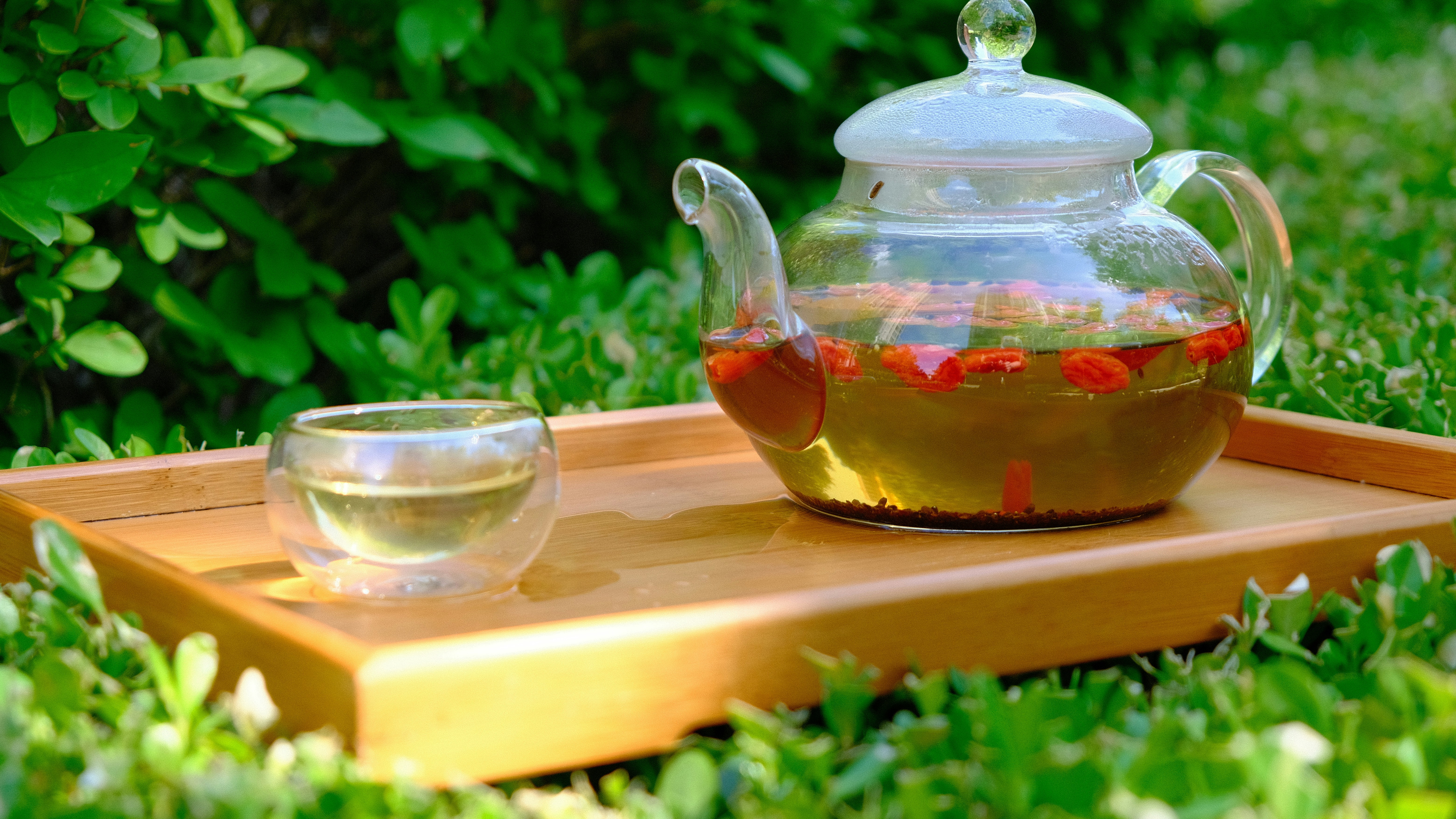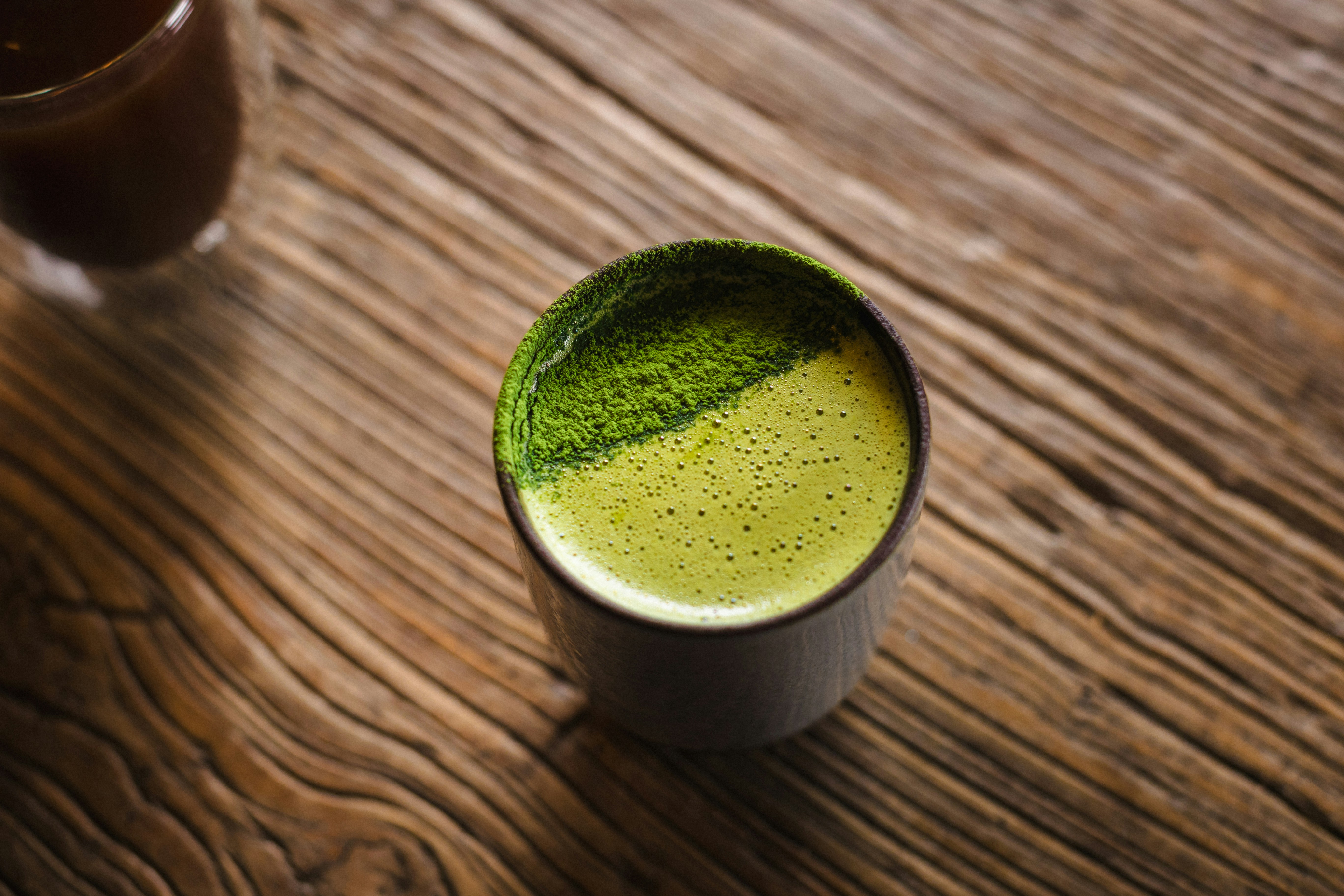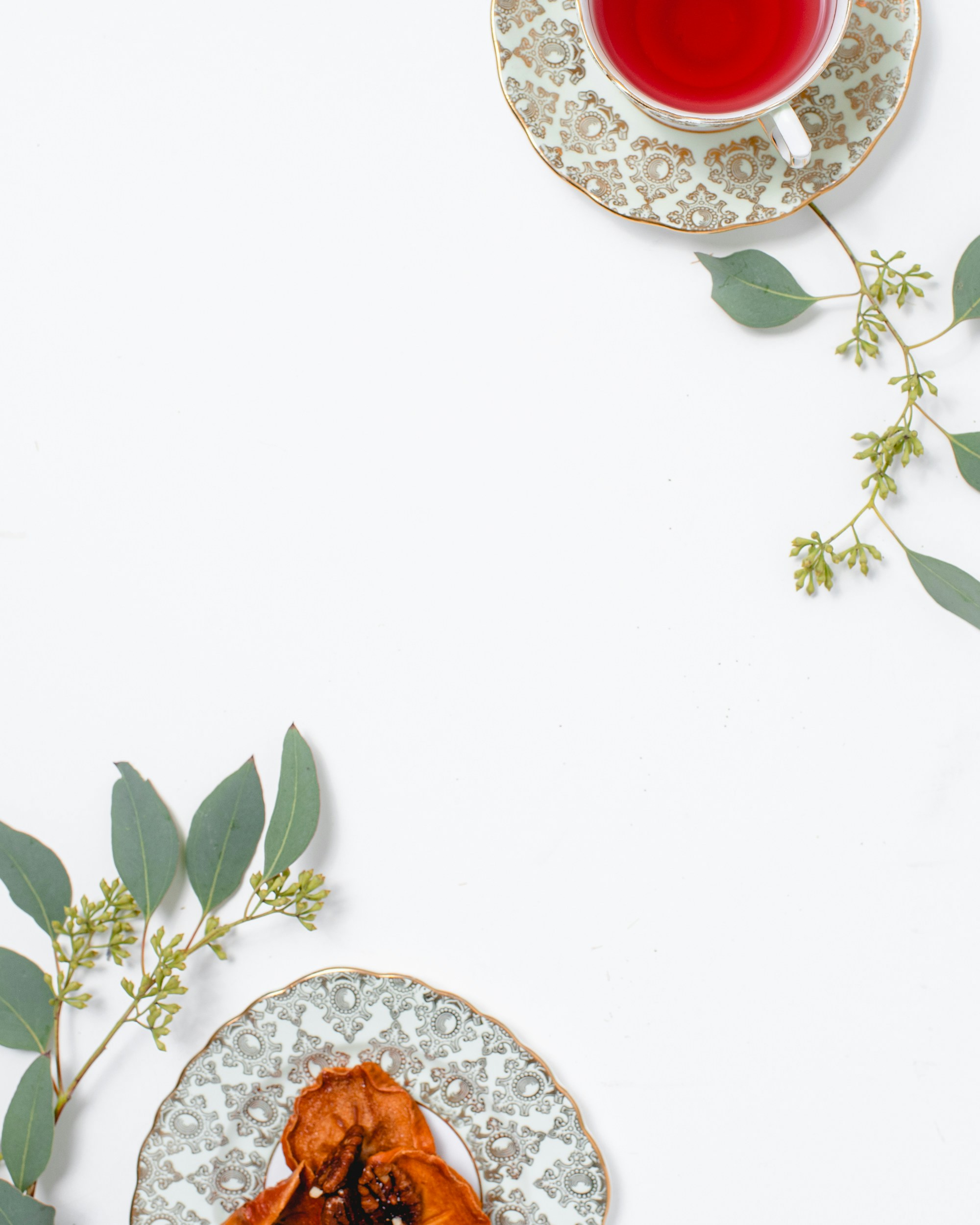Introduction: The Essence of Wellness in a Teacup
Tea, a globally cherished beverage, transcends its role as a mere warm drink. It embodies a cultural symbol of connection, mindfulness, and overall well-being. Across diverse continents, from the serene landscapes of East Asia to the bustling cities of Europe, each culture has cultivated its own unique traditions surrounding tea, weaving it into the rich tapestry of human experience. For centuries, tea has been revered not only for its delightful taste but also for its potential health benefits and its remarkable ability to foster community. The act of sharing tea often involves rituals that elevate it beyond simple consumption, transforming it into a cherished practice that strengthens social bonds and promotes inner tranquility.
As individuals steep their tea leaves, they also immerse themselves in a moment of self-reflection. This pause allows them to breathe, reconnect with the simplicity of life, and find solace amidst the demands of our fast-paced world. Many have embraced tea rituals as a form of self-care, a precious opportunity to slow down and reconnect with their inner selves and the present moment. The tradition of tea drinking often encourages mindfulness, urging individuals to savor the flavors, aromas, and warmth that this ancient beverage provides.
Across cultures, tea manifests in diverse forms, from the elegant Japanese tea ceremony to the vibrant chai gatherings in India. Each of these traditions showcases tea’s remarkable ability to unite and heal. Its versatility caters to a wide range of tastes and health needs, and it is frequently incorporated into wellness routines for its soothing properties. As we delve into the world of tea, we invite you to reflect on your personal experiences with this profound beverage, acknowledging how tea has influenced your relationships and nurturing rituals. Whether it’s a quiet moment with a cup at home or a lively gathering with friends, tea has a unique way of grounding us in the present and connecting us to one another.
The Historical Significance of Tea in Wellness Practices
Tea’s rich history intertwines with wellness across various cultures, celebrated not only for its delightful flavors but also for its profound connection to health and well-being. Its origins can be traced back to ancient China, with historical records mentioning its use as early as 2737 BCE. Legend attributes the discovery of tea to Emperor Shen Nong, who serendipitously stumbled upon its benefits when leaves accidentally fell into his boiling water. This fortuitous event marked the beginning of tea’s integral role in Chinese culture, where it evolved into a cornerstone of health and wellness practices, deeply embedded in the fabric of daily life.
In traditional Chinese medicine, tea is regarded as a healing beverage with the power to balance the body’s energies. Different varieties of tea, from the vibrant green to the complex oolong, are associated with specific health benefits, contributing to longevity and overall vitality. The ritualistic preparation and consumption of tea also play a significant role in these traditions, emphasizing mindfulness and presence, which are essential components of holistic wellness.
Beyond China, tea has exerted a similar influence on wellness practices in other regions. In Japan, the art of the tea ceremony, known as “chanoyu,” transcends mere beverage consumption, evolving into a spiritual practice that promotes harmony, respect, and tranquility. This ritual exemplifies how tea can facilitate emotional and mental well-being, offering individuals solace in the simple yet profound act of brewing and sipping.
In India, chai has become synonymous with hospitality and community. This traditional spiced tea not only warms the body but also fosters connections among family and friends, strengthening social bonds. From medicinal Ayurvedic formulations to a comforting cup after a long day, tea is deeply woven into the social fabric of India, embodying the essence of wellness and togetherness.
Thus, tea is more than just a drink; it is a living artifact that has traversed time and cultures, solidifying its significance in ongoing wellness traditions. By reflecting on the historical journey of tea, we gain a deeper understanding of its profound impact on individual health and collective cultural practices.
Health Benefits of Tea: Exploring the Science
Consumed globally for centuries, tea is often praised not only for its cultural significance but also for its numerous health benefits, supported by a growing body of scientific research. Different types of tea, including green, black, herbal, and oolong, possess unique properties that contribute positively to overall health and well-being, offering a diverse range of advantages for those who incorporate them into their daily lives.
Green tea, for instance, is rich in antioxidants known as catechins. Studies suggest that these compounds may help reduce oxidative stress and lower the risk of chronic diseases, including heart disease and certain cancers. The high concentration of catechins in green tea is also believed to contribute to improved metabolic rates, promoting fat oxidation and weight management. These potential benefits have led many individuals to include green tea in their daily wellness routines, seeking enhanced vitality and sustained energy levels.
Chamomile tea, on the other hand, is renowned for its calming effects. Scientific research reveals that chamomile contains apigenin, a compound that binds to specific receptors in the brain, promoting relaxation and inducing sleep. Many chamomile tea drinkers report improved sleep quality and reduced anxiety levels after incorporating this gentle beverage into their nighttime rituals. This exemplifies how the simple act of enjoying a cup of tea can significantly contribute to mental well-being and promote a sense of calm.
Black tea has been linked to improved gut health. Research indicates that the polyphenols in black tea may positively influence gut microbiota, fostering the growth of beneficial bacteria, which are essential for maintaining a healthy digestive system. A balanced gut microbiome is associated with numerous health benefits, including enhanced immunity and improved digestion. As a result, many individuals seeking to support their digestive health often turn to black tea as part of their wellness strategy.
In summary, the myriad health benefits associated with tea make it a valuable addition to any wellness routine. By examining the scientific evidence surrounding different types of tea, we can gain a greater appreciation for their unique contributions to overall health and well-being, from boosting our physical health to supporting our mental and emotional equilibrium.
Tea as a Spiritual Practice: Finding Inner Peace
The practice of drinking tea transcends mere consumption; it represents a sacred ritual imbued with spiritual significance for many individuals and cultures. Tea ceremonies have emerged not simply as a means of enjoying a beverage but as a meditative practice that cultivates mindfulness and introspection, offering a pathway to inner peace and connection with the present moment.
Many individuals find solace in the process of brewing tea, treating it as a form of moving meditation. One individual shared, “Every morning, I prepare my tea in silence. The act of measuring the leaves, boiling the water, and watching the color change is my meditation. It allows me to ground myself before the day begins.” This sentiment is echoed by countless others who have integrated similar rituals into their lives, discovering that the simple act of slowing down to appreciate tea can foster a profound sense of peace and heightened awareness.
In various Eastern philosophies, tea drinking is associated with essential concepts like presence and gratitude. Practitioners use the tea ritual to cultivate an awareness of the moment, encouraging reflection on their thoughts and emotions. The warmth of the cup, the fragrant aroma of the brew, and the subtle nuances of flavor create a rich sensory experience that enhances this contemplative practice. Some individuals use their tea time to connect with loved ones, sharing not only the beverage but also inspiring discussions, thereby deepening their relationships and creating meaningful connections.
This spiritual practice has also resonated within Western cultures, with individuals incorporating tea into their daily lives as a form of self-care and a pathway to inner peace. These moments of quiet contemplation transform tea drinking into a bridge connecting participants to a larger community of fellow practitioners, all seeking the grounding experiences that the ritual provides. As a result, tea drinking evolves from a simple act into a profound pathway for spiritual growth and connection, inviting individuals to explore their inner selves while fostering meaningful social bonds.
Mindful Moments: Crafting Your Personal Tea Ritual
Creating a personalized tea ritual provides a unique opportunity to integrate mindfulness into your daily routine, ultimately enhancing your overall wellness. The process begins with recognizing the importance of slowing down and being present in each moment. In today’s fast-paced world, it’s easy to overlook the simple joys, such as the mindful preparation and consumption of tea. By intentionally setting aside time for this practice, you carve out a space for peace and tranquility amidst the distractions of daily life.
Begin your tea ritual by selecting a tea variety that resonates with your individual preferences and health goals. Whether you opt for the invigorating properties of green tea for an energy boost or the soothing qualities of chamomile to unwind, the very act of choosing your tea becomes a mindful exercise. Pay close attention to the aroma, color, and texture of the leaves or tea bags, immersing yourself in the sensory experience, which strengthens the connection to your tea ritual.
Next, approach the preparation of your tea with care and intention. Consider designating a dedicated space in your kitchen where you can focus without interruptions. As you heat the water and steep the tea, take deep, conscious breaths and embrace the present moment. Enhance the experience by incorporating calming elements such as soft music or creating a comfortable seating arrangement where you can truly savor your tea. These thoughtful details transform the simple act of making tea into a cherished ritual.
Finally, when you are ready to enjoy your tea, engage all your senses mindfully. Notice the warmth of the cup in your hands, the gentle rise of the steam, and the complex dance of flavors on your palate. Reflect on the experience with gratitude for the tea and the moment itself. Customizing your tea ritual to align with your needs and aspirations ensures that it becomes an integral part of your wellness journey, encouraging consistency and a deeper appreciation for the present moment.
Tea’s Role in Social Connections and Community Building
Tea has long been more than just a beverage; it embodies a rich tradition of fostering relationships and promoting community. The act of sharing a cup of tea has the remarkable power to bridge cultural divides, connect individuals from all walks of life, and create enduring memories among friends, family, and even strangers. This inherently communal aspect of tea drinking is evident in diverse cultures across the globe, where serving tea often represents a gesture of hospitality, warmth, and genuine connection.
Many people cherish warm memories of gathering with loved ones over a freshly brewed pot of tea. Whether it’s a cozy afternoon with childhood friends or a formal tea ceremony commemorating a special occasion, these shared experiences embody the essence of togetherness. Each sip fuels conversations, laughter, and heartfelt exchanges, strengthening the bonds that connect us to one another. A family reunion, for instance, might be marked by the comforting aroma of herbal tea, providing the perfect backdrop for generations to share stories and strengthen familial ties.
Furthermore, tea’s inherently tranquil nature creates a serene atmosphere that fosters open and honest conversations. Its calming effects help people feel more at ease, making it easier to share personal struggles or discuss shared aspirations. Countless anecdotes recount friends offering support during difficult times while sharing warm cups of tea, demonstrating how this simple beverage plays a crucial role in emotional healing and connection.
In professional settings, the simple gesture of offering tea during meetings creates an inviting environment conducive to collaboration and camaraderie. The very act of pouring a cup signals openness and a willingness to engage, strengthening professional relationships and fostering a sense of shared purpose. Tea encourages moments of pause and reflection in busy workdays, reminding us of the importance of community and shared experiences in promoting overall wellness and creating a positive and productive work environment.
Choosing the Right Tea for Your Unique Lifestyle
Choosing the right type of tea for your individual lifestyle and preferences is essential to enhancing your overall wellness experience. Consider the type of tea, which can be categorized into caffeinated and herbal options. Caffeinated teas, such as black and green teas, provide an invigorating effect suitable for morning rituals or afternoon pick-me-ups when increased energy and focus are desired. They contain varying levels of caffeine, which stimulates alertness and concentration, helping you to navigate demanding tasks or stay engaged throughout the day.
On the other hand, herbal teas, such as chamomile, peppermint, or rooibos, offer a caffeine-free alternative known for their calming and digestive properties. These teas are ideal for unwinding in the evening, supporting relaxation before bedtime, and promoting digestive comfort after meals. When choosing herbal teas, explore the specific properties of each variety, as some may enhance sleep, while others may boost energy or support immune function. Consider your specific health goals and choose accordingly.
Pay attention to the flavor profiles of different teas as well. With a vast array of varieties available, ranging from robust and earthy to light and floral, the taste plays a significant role in your overall enjoyment and long-term adherence to a wellness routine. For example, a robust black tea may be more appealing to individuals seeking a strong and energizing beverage, while a delicate green tea or fragrant floral blend might suit those who prefer a milder, more refreshing experience.
Furthermore, consider aligning your tea choices with your daily activities to maximize their beneficial effects. Enjoy a vibrant green tea in the morning for a gentle boost, then transition to a soothing chamomile tea in the evening for relaxation and preparation for sleep. This mindful approach not only amplifies the inherent benefits of tea but also integrates it meaningfully into your wellness rituals, creating a holistic experience tailored to your individual lifestyle and personal goals.
Integrating Tea into Your Everyday Wellness Practices
Integrating tea into your everyday wellness routine can be a simple yet remarkably effective way to enhance your overall health and well-being. With its diverse range of flavors and health benefits, tea offers numerous options to suit various lifestyles and preferences. To begin, consider adding tea to your morning rituals. If you currently rely on coffee for your daily caffeine fix, transitioning to green tea or black tea can offer a gentler, more sustained energy boost without the jitters often associated with coffee. These teas also provide a wealth of antioxidants, promoting overall health.
During your mid-morning or afternoon breaks, herbal teas can offer a welcome respite. Varieties like chamomile and peppermint not only provide a refreshing and flavorful experience but also promote relaxation and aid digestion. Taking a few moments to savor a warm cup of tea offers a mental break, reducing stress and fostering a sense of calm, both of which are crucial for maintaining mental and emotional well-being. This seemingly simple ritual can have a profound impact on your day, helping you to feel refreshed, recharged, and refocused.
Incorporating tea into your evening routine can further enhance relaxation and prepare your body for a restful night’s sleep. Herbal teas like valerian root or lavender tea are particularly beneficial before bed, as their calming properties promote tranquility and improve sleep quality. Developing a soothing bedtime ritual centered around tea can signal to your body that it’s time to unwind, supporting your overall wellness goals and promoting healthy sleep patterns.
By finding the right times and types of tea to include in your wellness routine, you can experience significant improvements in your overall health and well-being. Whether you seek a morning pick-me-up, a stress-relieving afternoon break, or a soothing pre-sleep ritual, tea can play a vital role in fostering a healthier, more balanced, and more fulfilling lifestyle.
Conclusion: The Transformative Power of Tea in Our Lives
As we delve deeper into the multifaceted world of tea, it becomes clear that this ancient beverage is much more than a simple source of hydration. The ritual of tea drinking embodies a profound connection to tradition, culture, and the natural world, offering a unique and enriching pathway to enhancing our wellness routines. The diverse flavors and intoxicating aromas of various teas are not only delightful to the senses but also offer a wealth of health benefits that nourish both body and mind.
From promoting relaxation through calming herbal infusions to providing a gentle energy lift with green and black teas, the holistic benefits of tea are widely recognized and supported by scientific research. Regular tea consumption can aid digestion, strengthen the immune system, improve mental clarity, and sharpen focus, all contributing to a greater sense of overall well-being. Moreover, the act of brewing and savoring a cup of tea serves as a mindful practice, encouraging us to slow down, appreciate the present moment, and engage fully with our senses. This focus on mindfulness is increasingly recognized as a vital component of overall wellness, positioning tea at the heart of many self-care practices.
Incorporating tea into your daily life can foster a sense of community and belonging, as we connect with others through shared tea traditions and experiences. Each cup offers an invitation to reflect on our personal journeys, connecting us to generations past who also found solace, strength, and connection in the practice of tea drinking. As we conclude our exploration of this cherished beverage, we encourage readers to embrace the world of tea with open hearts and inquiring minds.
Whether you are a seasoned tea connoisseur or new to the delights of this ancient beverage, we invite you to consider how tea can enrich your own wellness journey. We also encourage you to share your personal tea experiences and insights, fostering a vibrant community of wellness enthusiasts who appreciate the transformative power of tea as a source of connection, peace, vitality, and overall well-being.








Leave a Reply